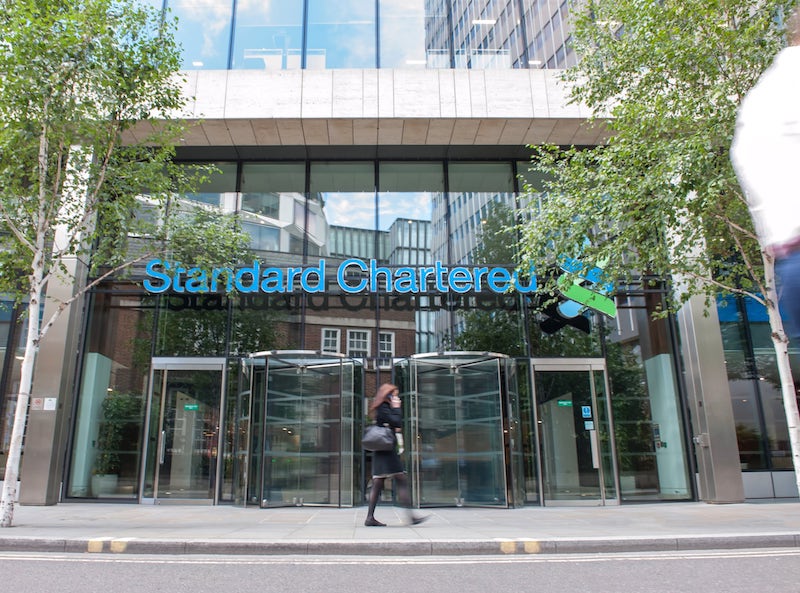HSBC Global Entrepreneurial Wealth Report 2023: 54% are 1st-Generation Entrepreneurs & 46% from Family Business Background, 33% to Exit Business Within 5 Years, 33% After 5 Years & 33% Do not intend to Exit Business
10th Nov 2023 | Hong Kong
HSBC has released the HSBC Global Entrepreneurial Wealth Report 2023, providing key insights into 973 entrepreneurs from 10 markets (India, Mainland China, Hong Kong, Singapore, UAE, Switzerland, France, US, US), with investible wealth of $2 million to $4.9 million (44%), $5 million to $9.9 million (34%) and more than $10 million (22%). Of the 973 entrepreneurs, 54% are 1st-generation entrepreneurs and 46% of entrepreneurs come from a family business background. 33% plan to exit business within 5 years, 33% to exit after another 5 years, and 33% do not intend to sell or hand down their business. 75% of entrepreneurs conduct business outside home country and 25% in home country only. 55% of entrepreneurs & family live in 1 location, and 45% live in 2 locations or more. Top 3 region with increasing importance for you & family in next 3 to 5 years – Europe 60%, North America 45%, Asia 32%. Target Country for Improved Profit Margins – Hong Kong 74%, India 68%, UAE 57%, Mainland China 50%. Target 4 Country to Access Broader Client Base – US 65%, Switzerland 63%, France 60%, UK 55%. Target Country for Better Direct Business Dealings – Singapore 53%. Top 5 Factors for international markets – Access to international direct investments, Investing in real estate, Education for my children, Access to international financial investments / portfolios, Buying property for my private use. Exit Business Plan – Transfer to the next generation of immediate family 39%, Transfer to another family member 13%, 100% sale to an external buyer 15%, Selling a majority share / phased transition 13%, Employee ownership trust or similar structure / management buyout 6%. Top 5 Actions Taken with Potential Business exit within 5 years – Ensuring family well-being 53%, Legal advice 41%, Personal well-being 35%, Start a relationship with a private bank / wealth manager 33%, Planning how to save / invest in the financial markets 30%. Top 5 Reasons to Exit Business – Next generation ready to take over 26%, Suitable buyer for my business 19%, Age that seemed appropriate 14%, New opportunities to develop beyond my business 11%, Values no longer aligned with the business direction 10%. To 5 Actions After Business Exit – Retire to pursue personal interests 27%, Invest in another business eg angel investing, venture capital 15%, Act as a mentor / independent director of businesses 15%, Identified another business idea that I would like to start 14%, Not thought about this 12%. Wealth Transfer Plan – Made formal wealth transfers 20%, Started informally helping my children and grandchildren 18%, To start in later years 40%, Wealth will only transfer on my passing 10%, No plans for passing on my wealth 11%. Top 7 Purpose of Wealth Transfer to Family – Preserve or distribute wealth to the next generation 73%, Invest in future businesses – either our own or others 30%, Use wealth for charitable / philanthropic causes 27%, Invest in real assets eg personal property, art, classic cars 26%, Pursue projects of passion, eg, art 20%, Pursue sustainable / impact investing 19%, No long-term plans for wealth 6%. Structure Setup in Place – Formal business succession plan 44%, Formal wealth succession plan 40%, Will 36%, Trust structure 34%, Family governance structure 27%, Informal support from trusted advisers 20%. Top 8 Concerns of Wealth Transfer to Next Generation – Work ethic of family members 34%, Desire of family members to pursue their personal routes / goals 33%, Lack of interest in the family business 33%, Lack of family skills and knowledge 32%, Lack of trust in their abilities to manage the business 31%, Lack of trust in their abilities to manage the wealth 29%, Stress placed on the next generation 29%, Family conflict 17%. Top 9 Advice for Others when Receiving or Passing on Wealth – Include all family members in the discussion 46%, Take more formal or structured advice 46%, Establish goals and desires of individual family members 44%, Start conversations within the family about passing on wealth much earlier than I experienced 36%, Start discussions with my private bank / wealth manager earlier 32%, Structured education on the process for the next generation 28%, Communicate extensively within the family on the subject 27%, Include fewer family members in the discussion 20%, Business education for the next generation 20%. See below for key findings & summary | View report here
“ 54% are 1st-Generation Entrepreneurs & 46% from Family Business Background, 33% to Exit Business Within 5 Years, 33% After 5 Years & 33% Do not intend to Exit Business “
HSBC Global Entrepreneurial Wealth Report 2023

HSBC has released the HSBC Global Entrepreneurial Wealth Report 2023, providing key insights into 973 entrepreneurs from 10 markets (India, Mainland China, Hong Kong, Singapore, UAE, Switzerland, France, US, US), with investible wealth of $2 million to $4.9 million (44%), $5 million to $9.9 million (34%) and more than $10 million (22%).
Summary
- Profile – 973 entrepreneurs in 10 markets (India, Mainland China, Hong Kong, Singapore, UAE, Switzerland, France, US, US)
- Business Ownership – Multiple businesses 16%, Single business 71%, Previous owner 13%
- Investible Wealth – $2 million to $4.9 million 44%, $5 million to $9.9 million 34%, More than $10 million 22%
- 1st-Generation Entrepreneurs – 54%
- Entrepreneurs from family business background – 46%
- Countries / Residences family & children live in 1 location – 55%
- Countries / Residences family & children live in 2 locations – 31%
- Countries / Residences family & children live in more than 3 locations – 15%
- Entrepreneurs conduct business outside home country – 75%
- Entrepreneurs conduct business in home country only – 25%
- Top 3 region with increasing importance for you & family in next 3 to 5 years – Europe 60%, North America 45%, Asia 32%
- Target Country for Improved Profit Margins – Hong Kong 74%, India 68%, UAE 57%, Mainland China 50%
- Target 4 Country to Access Broader Client Base – US 65%, Switzerland 63%, France 60%, UK 55%
- Target Country for Better Direct Business Dealings – Singapore 53%
- Top 5 Factors for international markets – Access to international direct investments, Investing in real estate, Education for my children, Access to international financial investments / portfolios, Buying property for my private use
On Business Exit & Wealth Transfer
- Timeline to Exit Business within 5 Years – 33%
- Timeline to Exit Business after another 5 Years – 33%
- Do not intend to sell or hand down business – 33%
- Exit Business Plan – Transfer to the next generation of immediate family 39%, Transfer to another family member 13%, 100% sale to an external buyer 15%, Selling a majority share / phased transition 13%, Employee ownership trust or similar structure / management buyout 6%
- Top 5 Actions Taken with Potential Business exit within 5 years – Ensuring family well-being 53%, Legal advice 41%, Personal well-being 35%, Start a relationship with a private bank / wealth manager 33%, Planning how to save / invest in the financial markets 30%
- Entrepreneurs Review of Previous Business Exit – Consulted more with my family 46%, More realistic understanding of my company’s value 38%, Started overall business preparations much earlier 36%, Considered my personal wealth position sooner 30%
- Ex-Entrepreneurs (with Exits) Recommendations to Entrepreneurs – Have a full understanding of the financial value of the company 50%, Ensure you have a full understanding of the process 47%, Start preparations as early as possible 42%
- Top 5 Reasons to Exit Business – Next generation ready to take over 26%, Suitable buyer for my business 19%, Age that seemed appropriate 14%, New opportunities to develop beyond my business 11%, Values no longer aligned with the business direction 10%
- Top 5 Actions After Business Exit – Retire to pursue personal interests 27%, Invest in another business eg angel investing, venture capital 15%, Act as a mentor / independent director of businesses 15%, Identified another business idea that I would like to start 14%, Not thought about this 12%
- Wealth Transfer Plan – Made formal wealth transfers 20%, Started informally helping my children and grandchildren 18%, To start in later years 40%, Wealth will only transfer on my passing 10%, No plans for passing on my wealth 11%
- Discuss with Family on Wealth Transfer – Already discuss this regularly 36%
- Start in the near future 32%, Not necessary to discuss this with my family / Will discuss this in later years 24%, Do not intend to discuss this with my family / will be taken care of through my wealth plans 8%
- Top 7 Purpose of Wealth Transfer to Family – Preserve or distribute wealth to the next generation 73%, Invest in future businesses – either our own or others 30%, Use wealth for charitable / philanthropic causes 27%, Invest in real assets eg personal property, art, classic cars 26%, Pursue projects of passion, eg, art 20%, Pursue sustainable / impact investing 19%, No long-term plans for wealth 6%
- Country of Entrepreneurs to focus on charitable or philanthropic causes or sustainable / impact investing – India 70%, Mainland China 58%, UAE 56%
- Country of Entrepreneurs to focus on to invest in businesses, either their own or others – India 47%, Singapore 39%, Hong Kong 37%
- Structure Setup in Place – Formal business succession plan 44%, Formal wealth succession plan 40%, Will 36%, Trust structure 34%, Family governance structure 27%, Informal support from trusted advisers 20%
- Top 8 Concerns of Wealth Transfer to Next Generation – Work ethic of family members 34%, Desire of family members to pursue their personal routes / goals 33%, Lack of interest in the family business 33%, Lack of family skills and knowledge 32%, Lack of trust in their abilities to manage the business 31%, Lack of trust in their abilities to manage the wealth 29%, Stress placed on the next generation 29%, Family conflict 17%
- Top 9 Advice for Others when Receiving or Passing on Wealth – Include all family members in the discussion 46%, Take more formal or structured advice 46%, Establish goals and desires of individual family members 44%, Start conversations within the family about passing on wealth much earlier than I experienced 36%, Start discussions with my private bank / wealth manager earlier 32%, Structured education on the process for the next generation 28%, Communicate extensively within the family on the subject 27%, Include fewer family members in the discussion 20%, Business education for the next generation 20%.
HSBC Global Entrepreneurial Wealth Report 2023
1) Entrepreneurs Profile
Profile: 973 entrepreneurs in 10 markets
Business Ownership:
- Multiple businesses – 16%
- Single business – 71%
- Previous owner – 13%
Investible Wealth:
- $2 million to $4.9 million – 44%
- $5 million to $9.9 million – 34%
- More than $10 million – 22%
10 Markets: India, Mainland China, Hong Kong, Singapore, UAE, Switzerland, France, US, US
Entrepreneurs Background:
- 54% are 1st-generation entrepreneurs
- 46% of entrepreneurs come from a family business background
Entrepreneurs Profile:
- 1st-generation entrepreneur & creator of wealth – 34%
- 1st-generation entrepreneur with no next generation at present -10%
- 1st-generation entrepreneur, younger generations are involved – 10%
- Family has a family business going back at least one generation, and hold / have held role in family business – 25%
- Family has a family business going back at least one generation, I run a separate business – 21%
Countries / Residences family & children live in:
- Only 1 location – 55%
- In 2 locations – 31%
- In 3 to 5 locations – 13%
- More than 6 locations – 2%
2) Location / Target Countries
Entrepreneurs conduct business outside home country:
- Expanding into additional markets – 13%
- Internationally / globally – 31%
- Within my geographic region – 18%
- Conduct business with an immediate neighbouring market – 13%
- Domestic Only – 25%
Top region with increasing importance for you & family in next 3 to 5 years:
- Europe – 60%
- North America – 45%
- Asia – 32%
- South America – 25%
- Middle East – 22%
- Africa – 10%
- Other – 1%
Target 4 Country for Improved Profit Margins:
- Hong Kong – 74%
- India – 68%
- UAE – 57%
- Mainland China – 50%
Target 4 Country to Access Broader Client Base:
- US – 65%
- Switzerland – 63%
- France – 60%
- UK – 55%
Target Country for Better Direct Business Dealings:
- Singapore – 53%
Top 10 Factors for international markets:
- Access to international direct investments – 43%
- Investing in real estate – 41%
- Education for my children – 39%
- Access to international financial investments / portfolios – 38%
- Buying property for my private use – 34%
- Financial centres / professional services – 29%
- Offshore jurisdiction / tax efficiency – 27%
- Personal overall lifestyle eg travel, leisure – 24%
- Ease of banking – 24%
- Permanent relocation – 3%
3) Planning for Business Exit
Timeline to Exit Business:
- Within the next 2 years – 11%
- Within the next 2 to 5 years – 23%
- Beyond 5 years – 33%
- I do not currently intend to sell or hand down my business – 33%
Exit Business Plan:
- Transfer to the next generation of immediate family – 39%
- Transfer to another family member – 13%
- 100% sale to an external buyer – 15%
- Selling a majority share / phased transition – 13%
- Employee ownership trust or similar structure / management buyout – 6%
- Not considered exiting my business – 15%
- Other – 1%
Actions Taken with Potential Business exit within 5 years:
- Ensuring family well-being – 53%
- Legal advice – 41%
- Personal well-being – 35%
- Start a relationship with a private bank / wealth manager – 33%
- Planning how to save / invest in the financial markets – 30%
- Expanding a relationship with a private bank / wealth manager – 29%
- Planning investment into new ventures – 22%
- Estate planning to secure liquid wealth – 21%
- Planning more family or leisure time – 12%
- Ensuring the family business legacy – 11%
4) Former Entrepreneurs on Business Exit
Review of Previous Business Exit:
- Consulted more with my family – 46%
- More realistic understanding of my company’s value – 38%
- Started overall business preparations much earlier – 36%
- Considered my personal wealth position sooner – 30%
Ex-Entrepreneurs (with Exits) Recommendations to Entrepreneurs:
- Have a full understanding of the financial value of the company – 50%
- Ensure you have a full understanding of the process – 47%
- Start preparations as early as possible – 42%
5) Entrepreneurs on Business Exit
Why Exit Business:
- Next generation ready to take over – 26%
- Suitable buyer for my business – 19%
- Age that seemed appropriate – 14%
- New opportunities to develop beyond my business – 11%
- Values no longer aligned with the business direction – 10%
- Business had reached a certain level of growth – 6%
- No longer needed income from my business – 5%
- Received an offer for the business that I could not refuse – 3%
- No longer enjoyed my role in the business – 3%
After Business Exit:
- Retire to pursue personal interests – 27%
- Invest in another business eg angel investing, venture capital – 15%
- Act as a mentor / independent director of businesses – 15%
- Identified another business idea that I would like to start – 14%
- Not thought about this – 12%
- Take a leading role eg CEO of another business – 9%
- Focus on philanthropic / charitable activities – 9%
6) Entrepreneurs on Wealth Transfer
Wealth Transfer Plan:
- To start in later years – 40%
- Made formal wealth transfers – 20%
- Started informally helping my children and grandchildren – 18%
- No plans for passing on my wealth – 11%
- Wealth will only transfer on my passing – 10%
Discuss with Family on Wealth Transfer:
- Already discuss this regularly – 36%
- Start in the near future – 32%
- Not necessary to discuss this with my family / Will discuss this in later years – 24%
- Do not intend to discuss this with my family / will be taken care of through my wealth plans – 8%
Top 7 Purpose of Wealth Transfer to Family:
- Preserve or distribute wealth to the next generation – 73%
- Invest in future businesses – either our own or others – 30%
- Use wealth for charitable / philanthropic causes – 27%
- Invest in real assets eg personal property, art, classic cars – 26%
- Pursue projects of passion, eg, art – 20%
- Pursue sustainable / impact investing – 19%
- No long-term plans for wealth – 6%
Country of Entrepreneurs to focus on charitable or philanthropic causes or sustainable / impact investing:
- India – 70%
- Mainland China – 58%
- UAE – 56%
Country of Entrepreneurs to focus on to invest in businesses, either their own or others:
- India – 47%
- Singapore – 39%
- Hong Kong – 37%
Structure Setup in Place:
- Formal business succession plan – 44%
- Formal wealth succession plan – 40%
- Will – 36%
- Trust structure – 34%
- Family governance structure – 27%
- Informal support from trusted advisers – 20%
- None of these – 6%
Top 13 Concerns of Wealth Transfer to Next Generation:
- Work ethic of family members – 34%
- Desire of family members to pursue their personal routes / goals – 33%
- Lack of interest in the family business – 33%
- Lack of family skills and knowledge – 32%
- Lack of trust in their abilities to manage the business – 31%
- Lack of trust in their abilities to manage the wealth – 29%
- Stress placed on the next generation – 29%
- Family conflict – 17%
- My own ability to pass control and let go – 14%
- Desire to preserve family values – 13%
- Increased risk – 13%
- Conservative approach of family members – 12%
- Spending habits of family members – 8%
- Other – 1%
Next Generation Values Aligned to Family Business:
- Fully aligned to my existing family values – 36%
- Largely aligned but intend to make certain changes – 32%
- Neutral – 16%
- Do not know what my family values are in running the business – 1%
- Would like to redirect the business / start my own business in a different direction – 4%
- Definitely a number of changes I would like to make – 9%
- Not applicable – 2%
Top 9 Advice for Others when Receiving or Passing on Wealth:
- Include all family members in the discussion – 46%
- Take more formal or structured advice – 46%
- Establish goals and desires of individual family members – 44%
- Start conversations within the family about passing on wealth much earlier than I experienced – 36%
- Start discussions with my private bank / wealth manager earlier – 32%
- Structured education on the process for the next generation – 28%
- Communicate extensively within the family on the subject – 27%
- Include fewer family members in the discussion – 20%
- Business education for the next generation – 20%
HSBC Global Entrepreneurial Wealth Report 2023
Conducted in partnership with AON UK limited, a total of 973 individuals across 9 different markets were surveyed via an online questionnaire or by telephone interview in March and April 2023. The survey was available in Arabic, Chinese (Cantonese), Chinese (Mandarin), English and French. Responses were gathered from France, Hong Kong, India, mainland China, Singapore, Switzerland, the UAE, the UK and the US. 10 qualitative, in-depth interviews were subsequently conducted by telephone with clients or experts across the target markets to complement the results and the insights generated by the project. The respondent audience comprised current and former entrepreneurs who were either first-generation wealth creators or part of multi-generational family business wealth, with at least $2 million of investable assets.
Foreword
Entrepreneurial leaders are by their nature extraordinary, each finding distinctive solutions and opportunities to the business challenges they face. From manufacturing textiles to developing battery technologies or even new vaccines, they enhance our lives with their exceptional ideas, innovations and ability to make change happen. Yet for all their differences, entrepreneurs share many of the same values: a strong work ethic, a hunger for taking their companies to the next level, and a passion for doing what is best for their families.
That’s why we have launched our first Global Entrepreneurial Wealth Report. By surveying current and former entrepreneurs in nine markets, we wanted to paint a comprehensive picture of the global business leaders of today and tomorrow. Our findings illustrate their backgrounds, global lifestyles and challenges, as well as many of their distinguishing characteristics. There are clear geographical variations, including how entrepreneurs in mainland China, Hong Kong and France tend to be the first in their generation to be running a business, while those in the UAE, Switzerland and India are more likely to come from a family business background. We are also able to show how today’s entrepreneurs are globally connected – whether they are starting up a new business in Asia or inheriting one in Europe and America – with nearly half living in more than one country and three-quarters conducting business with markets beyond their domestic border.
There are of course challenges that success brings. When it comes to wealth planning, greater wealth creates increased complexity. Our research shows that the wealthier the entrepreneur, the stronger their desire to pass on their inheritance to their families, yet also the less prepared they are for it. This is no contradiction: the transfer between generations can pose complex challenges, particularly when the management of a business move from the founder to their extended family. This is especially true for larger and more dispersed families. These are just a small handful of findings of our inspirational global business leaders within our first Global Entrepreneurial Wealth Report. We would like to thank those who took part in the survey and helped to shape this report. If you would like to discuss any of the topics covered in this report, please get in touch.
Annabel Spring
CEO, HSBC Global Private Banking & Wealth
Lavanya Chari, Global Head of Investments and Wealth Solutions HSBC Global Private Banking & Wealth: “While operating across borders can bring complexity, it also offers endless possibilities – be it the ability to raise a family in many different countries and cultures, access to new markets for your business or a broader range of investment opportunities.”
Sidney Wang, Head of International Connectivity HSBC Global Private Banking: “The key themes we see centre on global asset allocation both for personal and investment purposes, including financial, fixed and other assets. The international nature of entrepreneurs and their families, whether it be studying, living or working abroad, or relocating for work or family reasons, is a long-term growth trend – as is their expectation and demand for expert partners to help them navigate their personal journeys and achieve their goals.”
Caroline Kitidis, Global Head of UHNW HSBC Global Private Banking: “Our clients want to continue their wealth journey with their families, and that means educating their children to take on their family businesses and develop them to be ready for the next stage. With technological advances, globalisation and sustainability all playing a part in this development, businesses need to be able to adapt and transition. The next generation’s knowledge, interest, ability and willingness to support their families is key.”
Liz Lee, Head of Collaboration, Singapore & Southeast Asia HSBC Global Private Banking: “The sale of a business is a significant decision. It’s not merely about extracting liquidity; it’s about finding a strategic buyer who can nurture and expand the business and help you leave behind a lasting legacy. For those transferring to the next generation, consider if it’s the right fit for your children, assessing their readiness to carry the baton, and stamina to continue the marathon.”
Aik-Ping Ng, Head of Family Office Advisory, Asia Pacific HSBC Global Private Banking: “Identifying a suitable buyer involves first determining what that means for you and your family. Over and above just a discussion on the right price, the family should have an honest dialogue on how this sale will impact other stakeholders – clients, suppliers, employees and other minority shareholders, for example. For the family, managing the liquidity event effectively through proper wealth and transition planning is paramount. Setting up a family office could create a second engine of wealth creation that the family needs.”
Dan Peters, Head of Proposition Development HSBC Commercial Banking: “The value of a business is impacted by many factors, and it almost always comes as a surprise to the founder as they reach the point of sale – sometimes positively, sometimes negatively. By starting the preparation several years ahead of exit, entrepreneurs can make better-informed decisions and ensure a positive outcome with what is often their most valuable asset.”
Gemma Wild, Head of Collaboration, Middle East & North Africa HSBC Global Private Banking: “Your business exit doesn’t have to be the end of the story; it’s the beginning of the next chapter in your entrepreneurial journey. After years, or often decades, of hard work, it’s a chance to enjoy the fruits of your labour. You may want to stay in a similar field, venture into other industries or roles, or simply enjoy retirement. Whatever you decide, put a plan in place, so you can avoid unwanted complications and exit smoothly.”
Robert Nemzin, Senior Wealth Planner, Americas HSBC Global Private Banking: “Philanthropy can be a planning tool for teaching the next generation about wealth and preparing them to be involved with the family business. Charitable planning structures can be seeded and funded, and used to see how successful the next generation manages, invests and distributes the assets. These results can provide insight on how prepared the next generation may be for managing the family’s broader wealth and family business.”
Henry Lam, Regional Head of Wealth Planning & Advisory, Asia Pacific HSBC Global Private Banking “Deciding how to deploy family wealth or who will drive the family business is a time that can lead to stress, high emotions and a questioning of decisions. If you plan early, with open dialogue and professional support, the journey along the path of wealth transfer can be made much smoother.“
Edith Ang, Head of Family Advisory, Asia Pacific HSBC Global Private Banking: “The succession planning dialogue is invariably emotional, yet needs to have a clear purpose, be a reasoned discussion and have an alignment of objectives. This communication needs to be two-way. If done right, succession planning can be a celebration of the entrepreneurial spirit and hard work of the leading generation, which becomes the springboard from which the succeeding generations can reach greater heights.”
Sign Up / Register
Caproasia Users
- Manage $20 million to $3 billion of assets
- Invest $3 million to $300 million
- Advise institutions, billionaires, UHNWs & HNWs
Caproasia Platforms | 11,000 Investors & Advisors
- Caproasia.com
- Caproasia Access
- Caproasia Events
- The Financial Centre | Find Services
- Membership
- Family Office Circle
- Professional Investor Circle
- Investor Relations Network
Monthly Roundtable & Networking
Family Office Programs
The 2025 Investment Day
- March - Hong Kong
- March - Singapore
- July - Hong Kong
- July - Singapore
- Sept- Hong Kong
- Sept - Singapore
- Oct- Hong Kong
- Nov - Singapore
- Visit: The Investment Day | Register: Click here
Caproasia Summits
- The Institutional Investor Summit
- The Investment / Alternatives Summit
- The Private Wealth Summit
- The Family Office Summit
- The CEO & Entrepreneur Summit
- The Capital Markets Summit
- The ESG / Sustainable Investment Summit






































